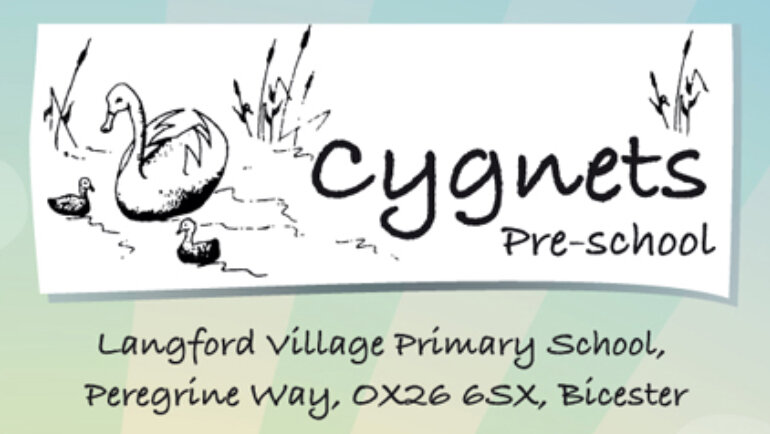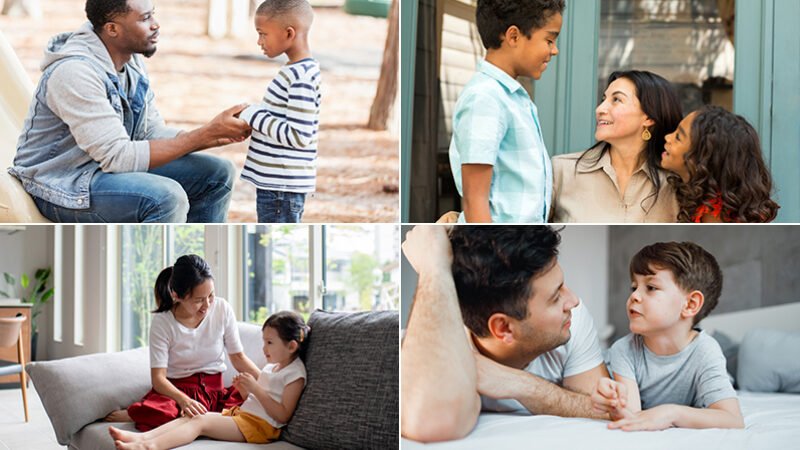
Typical development for early communication and language development of children

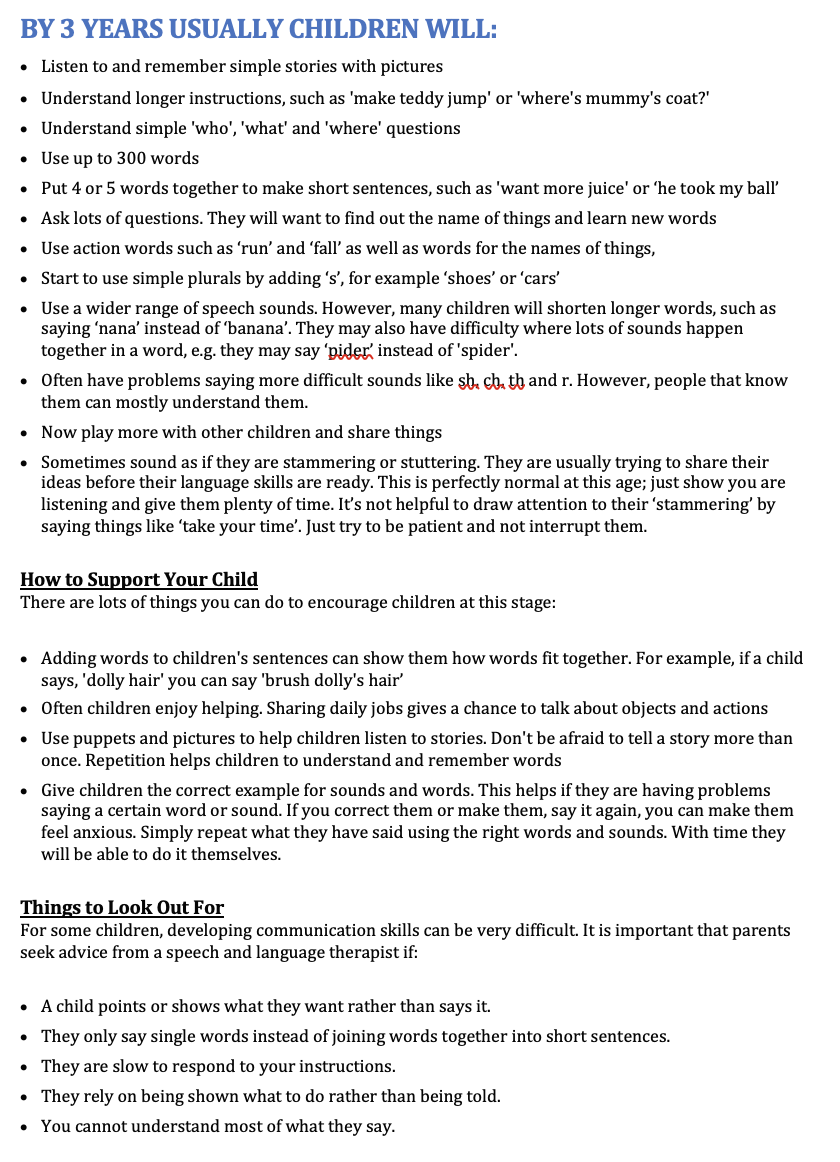
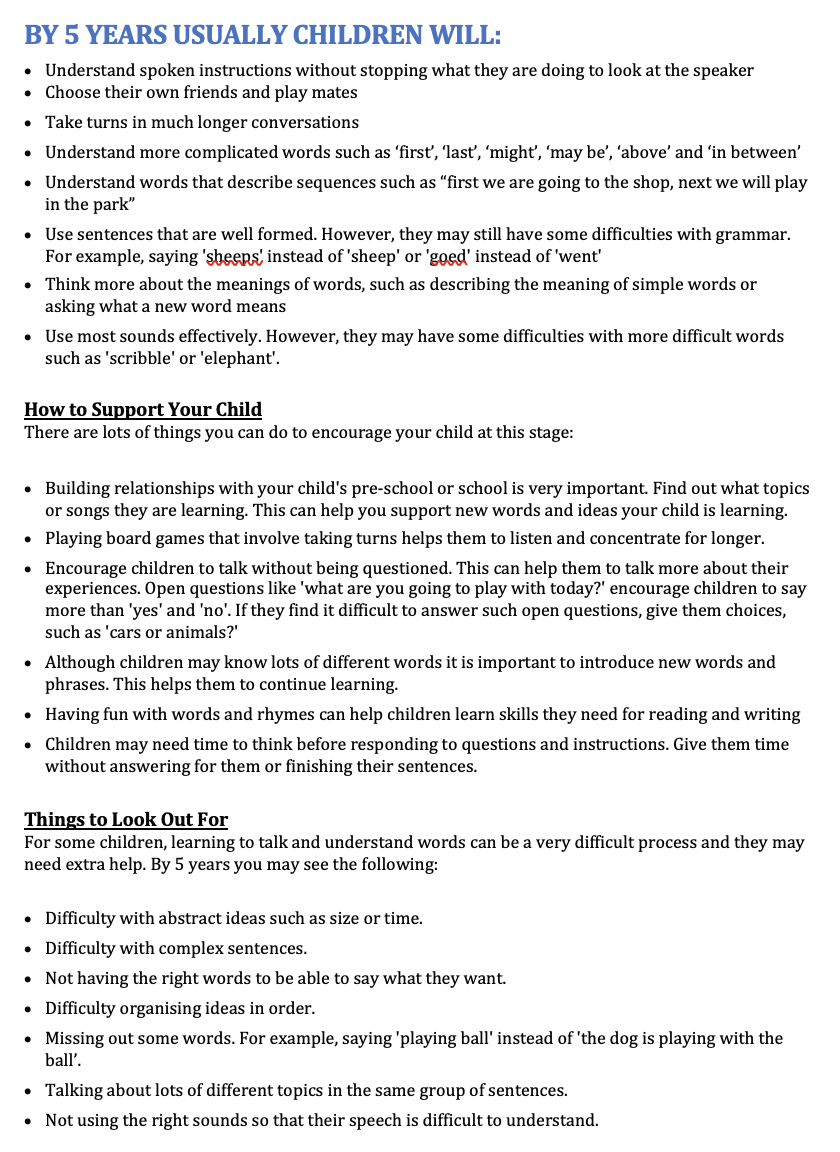
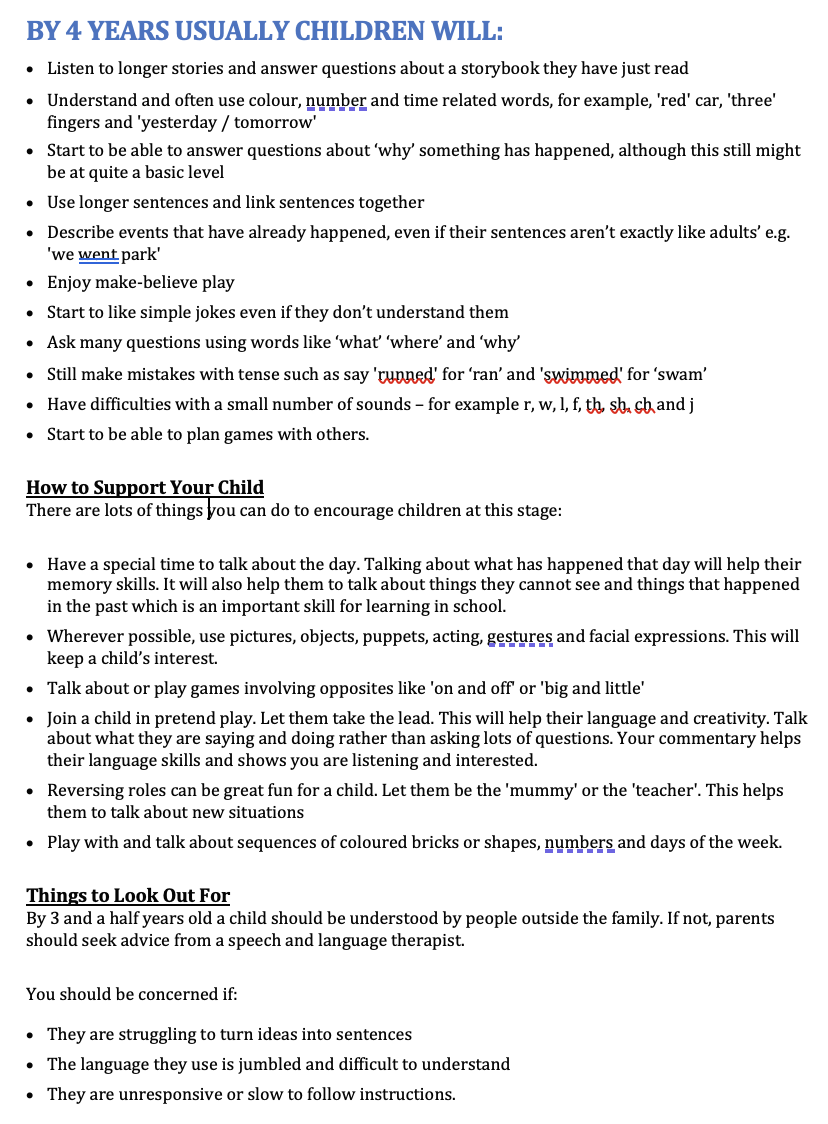
Cygnets Talking Tips
Use Cygnets Talking Tips as part of what you do every day with your child.
Our Early Years Practitioners embed these tips in to their Early Years development planning.
Face-to-face chat and play is a great way for babies to start to learn from birth. So one of the best things you can do from the very start is to get up close and let them watch your face as you talk.
-
Tip 1 - Be face to face with your child
This helps you and your child look and listen to each other.
It's easier to share a toy or activity together.
You can see what your child has to tell you.
Watch BBC Tiny Happy People video: One to One Time
Spending one to one time with your baby is a great way for them to develop their listening skills. Getting face to face with your baby is also great for bonding.
Watch BBC Tiny Happy People Video: Tools for Talking 0-3 months
Face-to-face chat and play is a great way for babies to start to learn from birth. From day one, they respond to eye contact and can recognise the voices they most often hear. By seeing facial expressions and watching how mouths move as they make sounds, they begin to learn about language. So one of the best things you can do from the very start is to get up close and let them watch your face as you talk.
-
Tip 2 - Watch and wait - let your child lead - then join in
It's easier for you to join in and help them when they're interested.
Your child will feel good when you show you are interested in what they do.
It helps then concentrate because it's an activity they enjoy.
Watch BBC Tiny Happy People video: Tools for Talking 9-12 months
A really simple way of helping your baby with their language learning is to talk to them about the things that capture their attention. If there's a particular toy or object that they're looking at, name it and talk about it. This helps them to connect the words you say with the things they see.
Watch BBC Tiny Happy People video: What is my baby interested in?
Should you pay attention to baby when they're playing or talk about the things they're interested in? Professor Ben Ambridge helps one family investigate which is best for their baby's language learning.
-
Tip 3 - Wait - give your child time to respond
Tip 4 - Talk about what your child does
This helps keep your child interested in what they are doing.
It helps your child learn useful/important words that link to what they like to do.
Hearing key words helps children learn to talk.
-
Tip 5 - Watch how your child tells you things and put the words in
This helps your child know you are listening and trying to understand even if they aren't talking yet.
It helps them to learn important words for things they really want to ask for and say.
Knowing that you are listening and they are getting their message across encourages them to try again and again.
Watch BBC Tiny Happy People video: Singing Songs with Actions
Your baby will love watching and copying actions when you sing songs together! This fun activity helps your baby begin to connect different words with actions.
Watch BBC Tiny Happy People video: Sing a Lullaby
Singing a lullaby is a perfect way to wind down and enjoy some special time with your little one. Your baby can join in or enjoy the soothing sound of your voice singing solo.
Watch BBC Tiny Happy People video: Ears, eyes, head, nose
The more you name the different parts of the face and point them out, the quicker your little one will learn them. You could try doing this with your own face, theirs or a teddy's. How many do they know? The more you repeat and point out different parts of the face, the quicker your child will learn them.
Watch BBC Tiny Happy People video: Singing with toddlers
It's no surprise that little ones love nursery rhymes, but did you know that the actions and repetition helps them remember words more easily? Try singing a variety of rhymes with them over and over, how many words and actions do they know?
-
Tip 6 - Sing songs rhymes and share books
This helps your child to hear lots of new words and eventually use them as they sing along.
Using actions helps your child to understand what the words mean.
This gives your child the chance to hear and understand new words they may not hear in everday talking.
Your child is able to go first and talk to you in whatever way they can e.g. looking at a particular part of the page, smiling, making a noise, pointing or even saying words.
-
Tip 7 - Make screen time; me and you time
Experts say too much screen time is not good for your child's speech, language and communication development.
Make screen time a time where you and your child share what is happening together. Talk to your child about what they can see and use the screen as a prompt for interaction and bonding.
-
Tip 8 - Match and extend your child's language
When asking your child to do something, remember to match your language to your child's language level. If your child uses one key word, you use one key word in your instruction.
Think about how your child is talking to you. If your child looks at something or reaches/points at it, name it for your child. If they are using words, add more words.
-
Tip 9 - Limit the amount of questions
This will encourage your child to make comments.
Instead of asking questions like 'what is it?', name the item for your child.
Make a short comment, matching what your child is doing.
Wait to see what your child does.
-
Tip 10 - Offer choices
Using choices as much as possible through the day is a very effective way of helping your child learn new words and then use the words they know.
Choices can be used to help children learn new words, to help them say words more clearly or to help them use the word in a small sentence.

